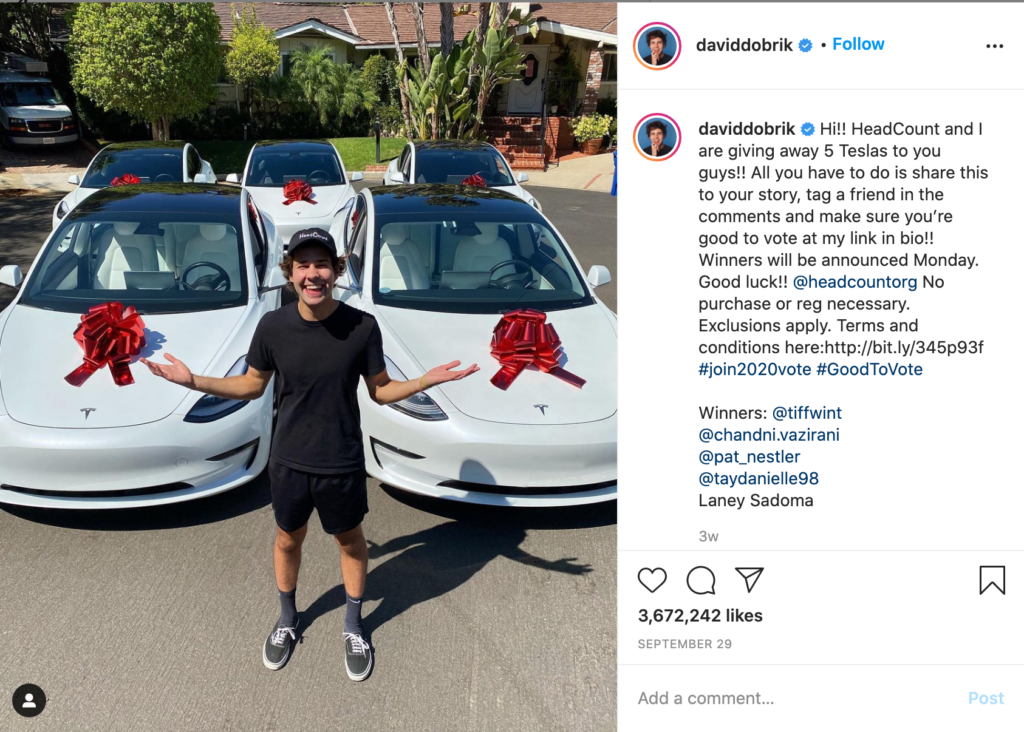In case you haven’t heard (!) – it’s election time. The season has been particularly intense this year. One approach for reaching voters and potential voters is through influencers – individuals who have built up a relationship with devoted fans who take cues from them. Observing how these powerful people affect behavior and outcomes can be very relevant for those of us working for environmental behavior change.
Our environmental campaigns often feature people who share likes, interests and world view and demonstrate the behavior we want to see. We may target occasional gardeners to get them to use less toxic pesticide, or campers to get them to use recyclable propane containers. These folks often take cues from someone they admire, who shares their interests and values – that is, from influencers.
This article in Behavioral Scientist notes that (in general) influencers don’t have universal influence; but, they have impact and authority with those in their group who identify with them.
The article suggests:
One way to strengthen a group identity is to help people understand the causal connections between that group and other important aspects that people use to define themselves. Peaceniks should be told how important belonging to the group is to fostering world peace; football fans need to associate their local club with achieving football glory.
A recent CNN article gave several examples of nonprofits working to encourage influencers to get young people to register to vote. Being a successful influencer means you identify with the population you are trying to reach, and you are comfortable with the channels (such as TikTok or Animal Crossing.)
Influencers don’t have to have millions of followers:
“We’ve found a way to build a program of influencers big and small; most have around 1,000 followers. Makeup bloggers, Greek life on campus, doggie Instagrams, drag queens and everyone in between have been really receptive to us sliding into their dm’s [direct messages] to save democracy. Our influencers are typically nonpolitical and have audiences who trust them, so when they are providing links to register or pledge to vote we see really great engagement levels,” said Heather Greven, communications director at NextGen America.
And then there are the questionable incentives that some influencers offer their millions of followers in return for an action. The YouTube star David Dobrik got 120,000 people to register to vote…by offering a sweepstakes to win a Tesla! David got the idea from a fan, who posted the idea on TikTok. Ironically, as a Dreamer immigrant from Slovakia, Dobrik cannot vote himself.
What does this have to do with those of us working for environmental behavior change? The advantage of engaging with influencers for waste reduction or energy savings are the same as those to encourage voting: find and work with influencers – not necessarily eco-people – who already have a relationship with a target group and help them (don’t tell them to) create behavior change. But maybe cool it with the extrinsic motivation – no promising folks an electric car if they give up single use bottles…!
